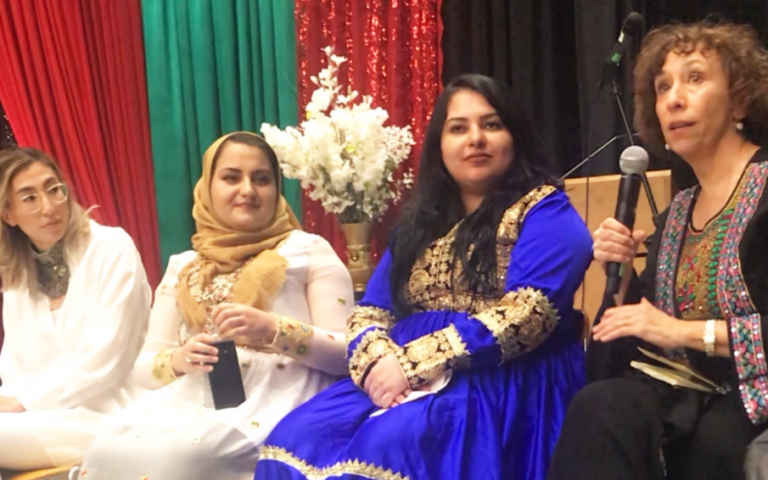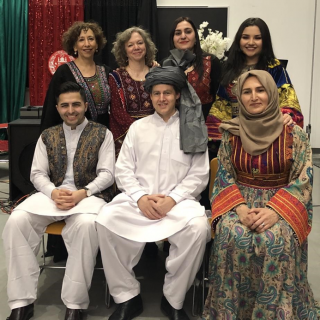UCL and the University of Toronto work together to preserve Afghan poetic genre celebrating women
The two institutions have hosted a series of events to celebrate the Afghan poetic genre which encourages female empowerment

3 May 2019
UCL and the University of Toronto (U of T) have teamed up to celebrate and raise awareness of a genre of Afghan women’s poetry traditionally used to address social injustices and cultural taboos.
UCL’s Vice Dean International (Social and Historical Sciences) Professor Ruth Mandel and the U of T’s Professor Shafique Virani are leading a joint seed-funded project looking at the Afghan oral poetic genre known as ‘landey’.
Bringing communities together
Landey poems address everyday life as well as geopolitics, and have long been one of the few arenas where Afghan women express their feelings and thoughts relatively freely.
In celebration of the Persianate New Year festival Nowruz, Professors Mandel and Virani co-organised a series of events at the University of Toronto to explore the topic. Performances of traditional and contemporary landey, Afghan dance recital and live music attracted over 200 attendees, bringing together local Afghan students and the wider Afghan community in the Toronto area as well as academics from across the UK, Norway, the US and Canada.
The collaboration builds on Professor Mandel’s work to enable creative expression among refugees last year with the Norwegian Institute of Philology, funded by UCL’s Global Leadership Funds. This project focussed in particular on the prominence of language in the immigrant integration experience.
During the Toronto events, Professor Mandel chaired a panel discussion on landey poetry, diasporic lives, translation and poetic inspiration. A workshop provided an opportunity for participants to plan how to build awareness of the genre through the creation of a video archive of landey recitals in multiple languages.
Protecting Afghan cultural heritage
Professor Mandel explains that by opening the project to landey reciters and composers in other countries, the project’s aim is to ensure that the cultural heritage that landey represents continues to thrive.
She said: “With the decades of war, disruption and displacement, this poetic genre has been under threat of being forgotten in the Afghan diaspora. A key element of the project falls under the rubric of cultural preservation. Central to the project is introducing it to a younger generation and engaging them in both collecting and producing landeys.”

Social media outreach plays an important role. Pamir Ehsas, an Afghan-Norwegian student, and Sheha Akbari, an Afghan-Canadian student, ran a social media campaign for the project, posting landeys every day in the lead-up to the events. Pamir, who also founded the NGO Brighter Tomorrow to develop educational tools for youth in Afghanistan, said:
“The most powerful aspect of landeys is how they demonstrate Afghan female empowerment. This is a narrative that non-Afghans unfortunately don’t get to see that often. I’m deeply grateful to this project for having brought Afghans together – regardless of religious belief, ethnicity or age – and uniting us while preserving our beautiful heritage.”
Next steps
During a workshop, numerous volunteers in the audience took the roving microphone and recited landeys – some well-known ones, others spontaneous and improvised, and others drawn from prior postings on the event’s Facebook page. Students at the University of Toronto involved in the project are in the process of collating the footage and plan to continue to film recitals and build and promote the archive.
As a result of the collaboration, a book about landey in three languages (Pashto, English and Norwegian) is now in the works. The book will include landeys in print and audio files as well as essays on their historical, cultural, and gendered contexts.
 Close
Close

